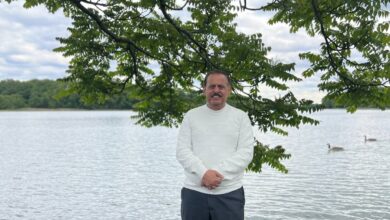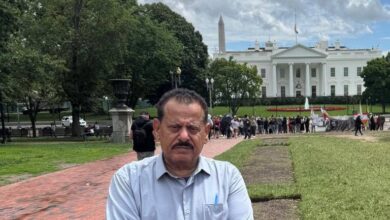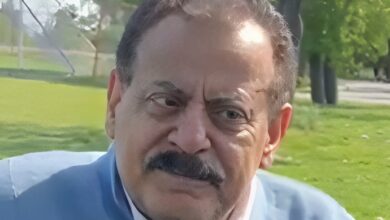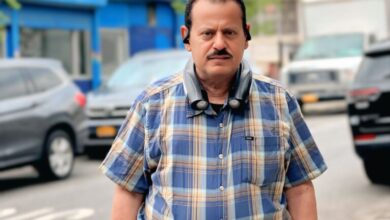?Am I a Wrongdoer
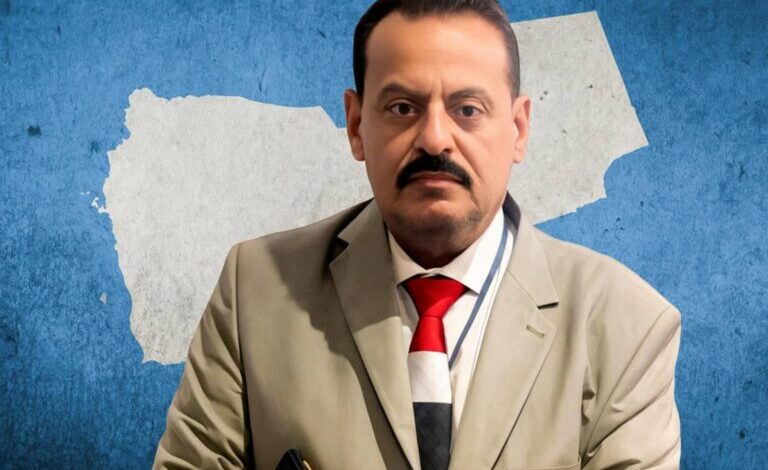
Yemeni mp
Ahmed Saif Hashed
I leaned out from the apartment window and beheld children carrying containers filled with water, heavier than their own bodies. Their forms were frail and weary, as if they were grappling with fates that offer no mercy or compassion to a child.
I witnessed a little girl burdened with something twice her weight—a bucket of water she could scarcely balance on her head. She could only manage to carry it for about ten steps, as though she were dragging along the weight of her lamented life. She paused briefly to catch her breath, nearly lost, then resumed her arduous journey home, water in tow, a hundred stages and a thousand steps to conquer death.
Here, every step embodies the essence of a life striving to live with dignity. The return with water might save a family from the clutches of thirst. She pressed on, exerting herself with each step, stumbling and slowing down at every turn. Her return home with water was nothing short of a miracle! I found myself pondering: When will she arrive home? Will she truly make it? And then the question emerged before me: Are we the wrongdoers?
I leaned out of the apartment window and beheld children carrying containers filled with water, heavier than their own bodies. Their forms were frail and weary, as if they were grappling with fates that offer no mercy or compassion to a child.
I watched a little girl burdened with something twice her weight—a bucket of water she could scarcely balance on her head. She could only manage to carry it for about ten steps, as though she were dragging along the weight of her lamented life. She paused briefly to catch her breath, nearly lost, then resumed her arduous journey home, water in tow, traversing a hundred stages and a thousand steps to conquer death.
Here, every step embodies the essence of a life striving to live with dignity. The return with water might save a family from the clutches of thirst. She persevered, exerting herself with each step, stumbling and slowing down at every turn. Her return home with water was nothing short of a miracle! I found myself pondering: When will she arrive home? Will she truly make it? And then the question emerged before me: Are we the wrongdoers?
I watched women as they brought water, jostling for a source in the area opposite. I witnessed the suffering of a war that cares little for the calamities it inflicts upon innocent and kind-hearted people. Women, children, and the elderly risk their lives to confront the thirst that has intensified after days of water shortages. They wage their battle so that death does not consume them in their homes, surrendering to despair. I saw good, unarmed citizens struggling to carve out a path for survival amidst the chaos of war.
A question overwhelmed me: How can conscience absolve itself of responsibility in such circumstances? I found myself defending my actions as if I were the accused: I did not create this painful reality! What can I do to change the situation or tilt the balance in favor of these good people? The reality now imposes its conditions on everyone, and I am living in my own hell as well. My life hangs by a thread; the future is uncertain, perhaps dependent on who emerges victorious. This reality has become far greater than I can comprehend—beyond comparison or measurement. What can I do? And will my actions change anything?
Despite my defense, the ache of my conscience remains, refusing to leave or relent. The pain intensifies, stinging me like the whip of a tormentor. The question persists: Am I a wrongdoer? This question echoes in my ears, lodged in my mind, overwhelmed by what I see and hear, and my weary awareness of everything happening around me.
Communications are cut off, water remains unavailable, and there is no hope for its return. The unknown lurks in every street and corner. But what fault do the innocent citizens bear—those with no connection to the war, neither near nor far? They are, in fact, victims in this situation, fighting their fundamental battle for survival. They bravely confront death and numerous fears. How just and humane their struggle is, oh life!
Their challenge to death was evident as they waded into the absurd war between the two factions, each striving for victory and triumph. The unarmed citizens are the majority who did not participate in the creation of this war, yet they are the first to bear its burdens, catastrophic consequences, and enduring tragedies. They deserve life more than anyone else.
If you do not confront death and step out to face it, it will come to smother your breath, leaving you to die in the burrow you have not left. In circumstances like these, if you do not emerge to grapple with death and claim your share of life, you will die of thirst, hunger, and despair. Death will inevitably come to you while you cower, humiliated and trembling.
That day, I was exhausted, having not slept the previous night or during that day. I placed my hand on my head and felt strands of hair falling away easily, as if they were not part of me. I tried to check, only to find them shedding with the slightest touch, without my realizing they were rooted in my scalp. I decided to leave it be, fearing I might suddenly find myself without hair, perhaps even without a scalp. I thought a sickness had claimed me, damaging my scalp! I asked the soldier accompanying me if he was suffering as I was, and he revealed that he had experienced this condition before I did.
I remained locked in a battle of endurance against the war, while my struggle with my conscience raged fiercely. I found myself facing two fronts, and the battle with my conscience was the most intense—my conscience that refused to sleep.
* * *


